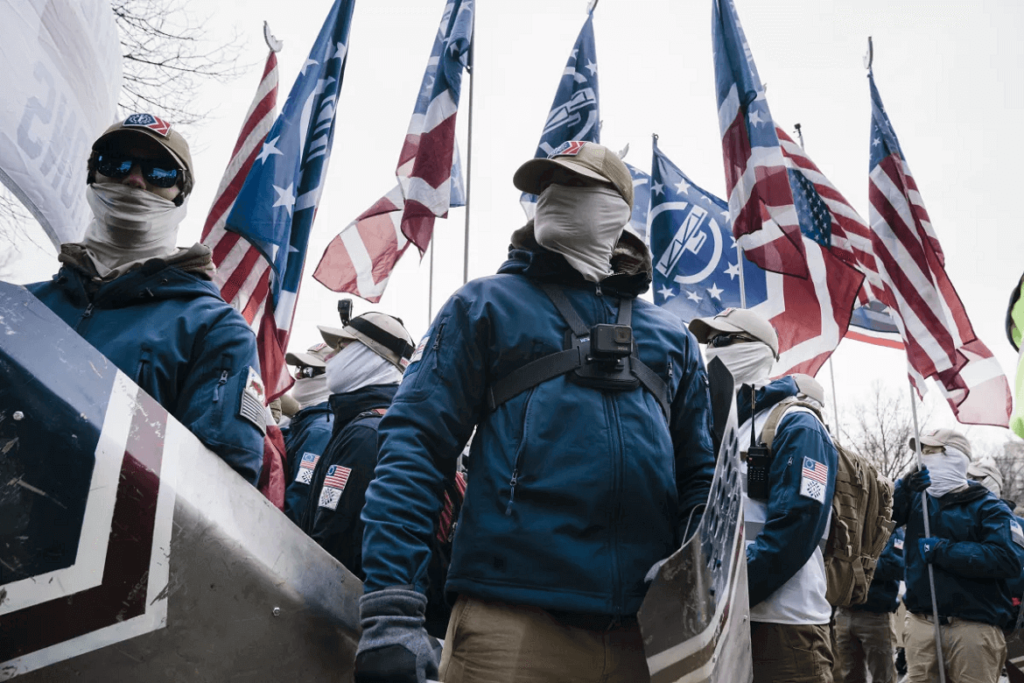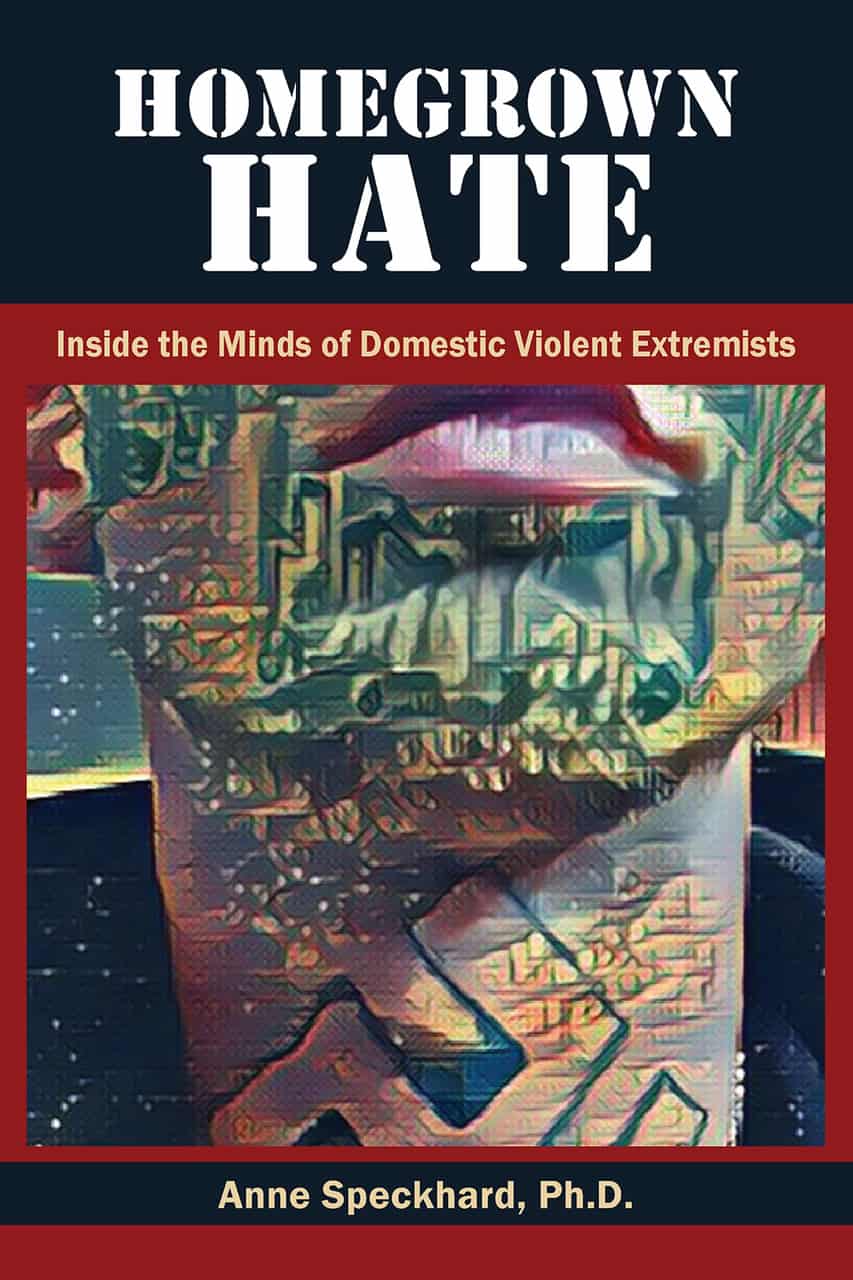World Geostrategic Insights interview with Anne Speckhard on the domestic terrorist threats in the United States, their motivations and international connections, and how to counter them.

Anne Speckhard, Ph.D., is Director of the International Center for the Study of Violent Extremism (ICSVE) and Adjunct Associate Professor of Psychiatry at Georgetown University School of Medicine. Dr. Speckhard trains key stakeholders in law enforcement, intelligence, hostage negotiation teams, educators, and other professionals in countering violent extremism, locally and internationally. She has worked with the FBI, U.S. Senate and House, U.S. Departments of State, NATO, OSCE, UNODC and other international organizations. Dr. Speckhard is the author of five books: Homegrown Hate: Inside the Minds of Domestic Violent Extremists, Talking to Terrorists, Bride of ISIS, Undercover Jihadi, and ISIS Defectors: Inside Stories of the Terrorist Caliphate.
Incidents of domestic terrorism have risen to new levels in the United States. In your recent book “Homegrown Hate: Inside the Minds of Domestic Violent Extremists,” which includes 50 in-depth interviews with current and former members of a wide range of domestic hate groups, you offer a unique insight into the men and women turned to violence. How would you define domestic terrorism, and what exactly falls under it?
Domestic terrorism is that which emanates from groups and individuals inside the country and is not directed by external groups such as al Qaeda, ISIS, etc. The FBI definition is: Violent, criminal acts committed by individuals and/or groups to further ideological goals stemming from domestic influences, such as those of a political, religious, social, racial, or environmental nature.
What are the main motivations, influences, theories, prejudices and biases that inspire acts of violent domestic extremism?
In the US the most lethal domestic terrorists are those that follow white supremacist ideologies that claim whites are superior, and often name Jews as the ultimate enemies trying to harm the white race. QAnon also has fueled domestic extremism as have anti-government militia movements that claim the constitution is being violated and these groups are necessary to protect constitutional rights such as gun rights or other individual liberties. Similarly, the claim that the Presidential election was stolen fueled domestic extremism and the Capitol insurrection. Incels and their black pill ideology that blames women and feminism and the men who have partners for the woes of incels have also been a source of violent extremism.
The Biden administration has prioritized domestic terrorism as the number one counterterrorism concern in the United States, as evidenced by the release of the first-ever national strategy on the subject and a series of measures and initiatives implemented by various departments and agencies. After two decades of focusing almost exclusively on the terrorist threat posed by the global jihadist enterprise and its local supporters, the U.S. intelligence effort now appears to be focusing on domestic violent terrorism. Is homegrown extremism really the most pressing terrorist threat to the United States right now? Why?
Yes, crime statistics and the FBI both bear out the truth that domestic violent extremism is the much greater threat inside the US than militant jihadist or international terrorist groups are.
Can the hard-won experience of the United States in fighting Al Qaeda and the Islamic State be useful in countering the wave of attacks by domestic extremists?
Yes, many researchers, including myself, have studied the motivations and vulnerabilities involved in radicalization into violent extremism and terrorism, and we have a great deal of knowledge now also about recruitment and the use of the internet for recruitment as well as how conspiracy theories can play a role. All of these can be used to inform us on domestic extremism. I made many comparisons in my book Homegrown Hate about how domestic extremists were similar to and different and also learning from al Qaeda and ISIS as well as when they may join forces.
How to combat the new domestic terrorism?
We must do the same things we did for international terrorism that were of use. We need to fight the violent ideologies and discredit them, hopefully teaching youth in schools that they are likely to encounter these ideas on the internet and why they are false and virulent. We need to teach critical thinking as well. We also need to understand the vulnerabilities and motivations for joining. In my sample of 51 domestic violent extremists, we found belonging, wanting a sense of purpose and dignity and significance were all important factors for joining. Hate was a learned process and followed a trajectory we labeled directed hate. We also need to stop leaders and recruiters by taking their materials down from social media and arresting those who incite for terrorism. We should consider how most domestic terrorists kill and consider limiting access to repeat firing guns, etc. as well.
Can acts of domestic terrorism also have any foreign connection?
Yes, many white supremacist groups have international connections ideologically and through internet sharing. Many so-called lone wolves who are white supremacists study each other’s manifestos and try to outdo one another.
Might foreign intelligence and foreign terrorist organizations be able to promote socio-political content or foster conditions conducive to violent attacks by domestic extremists?
Absolutely, we have already seen this happen with Russian bots promoting QAnon conspiracy theories.
Are there foreign policy implications in domestic terrorism?
Yes, in the sense that we need to consider where virulent web content is hosted and what forces outside of our country may fuel domestic violent terrorism. The war in Ukraine is an example. We know some Americans who were part of anti-government militias went to fight there and they may come home very weapons trained and dangerous. Likewise the economic global hardships posed by a war far away increases prices leading to frustration for those already prone to recruitment to violent extremism, making them even more vulnerable.
Anne Speckhard, Ph.D, – Director of the International Center for the Study of Violent Extremism (ICSVE). Author of Homegrown Hate: Inside the Minds of Domestic Violent Extremists








